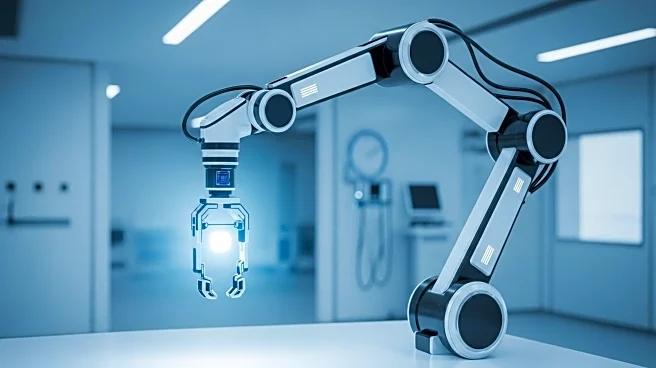What's Happening?
Hospitals are increasingly turning to AI to improve asset management, focusing on predictive maintenance, real-time tracking, and smart data dashboards. This shift aims to address inefficiencies in managing physical assets like infusion pumps and ventilators, which are often misplaced or underutilized. AI technologies are being integrated to enhance visibility and control over hospital equipment, reducing downtime and improving patient care. The move towards AI-driven asset management is seen as a critical step in optimizing hospital operations and ensuring equipment availability.
Why It's Important?
The integration of AI in hospital asset management has significant implications for healthcare efficiency and patient outcomes. By reducing equipment downtime and improving resource allocation, hospitals can enhance patient care and reduce operational costs. This technological shift also addresses staff burnout by minimizing time spent searching for equipment. The adoption of AI in this area is part of a broader trend towards digital transformation in healthcare, which aims to improve service delivery and operational efficiency.
Beyond the Headlines
The use of AI in asset management raises important considerations around data privacy and security, as hospitals must ensure that sensitive information is protected. Additionally, the shift towards AI-driven systems may require significant investment in technology and training, posing challenges for some healthcare institutions. However, the potential benefits in terms of cost savings and improved patient care make this an attractive proposition for many hospitals.









